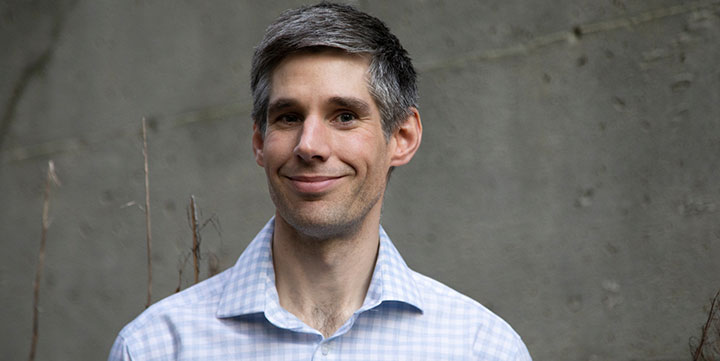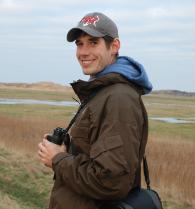CapU Research: Crows show brain re-training can manage predation behaviour
Although notorious for robbing eggs and chicks from the nests of other birds, crows can be trained out of their predatory ways. The tendency of crows to steal from smaller, more vulnerable birds is exacerbated where crow numbers have been boosted by human activity.

Using a technique called Conditioned Food Aversion (CFA), Capilano University Biology instructor Thomas Flower, PhD, and fellow researchers were able to teach wild pied crows living on the Berg River estuary in South Africa not to eat the eggs of other bird species by setting up artificial nests with vomit-inducing eggs in them.
In a study published in Journal for Nature Conservation, Flower explains that by matching characteristics of artificial nests to those of endangered shorebirds living at the estuary, such as chestnut-banded plover, the team hope to help more chicks survive and bolster the shorebird populations.

Pied Crow, South Africa
Historically, pied crow were not abundant at the Berg River. This crow has only moved in because humans provide food waste and pylons on which crows build their nests. Flower points out that CFA is a non-lethal intervention, preferable to lethal methods of predator control including shooting.
The decline of numerous bird species worldwide has been attributed to increased nest predation pressure often associated with anthropogenic factors. Therefore, identifying effective management strategies to reduce nest predation is a conservation priority.
Flower and his team have illustrated how manipulating behaviour with CFA might be an ethical and effective tactic. The study advanced the field of conservation biology by identifying rigorous experimental methods for CFA trials that can be used in wildlife management trials universally.
More from Thomas Flower, PhD
Join CapU Biology instructor Thomas Flower on February 25, 2021, as he explores the questions Can life adapt? How will climate change affect biodiversity in B.C. and beyond? in our Capilano Universe lecture series.

Submitted by: Linda Munro, Communications
